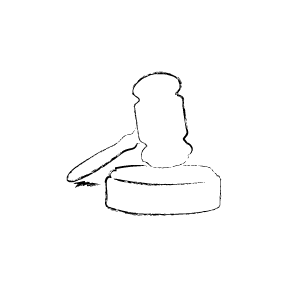The Future of Religious Accommodation and Discrimination
Last time we talked about the current law on religious discrimination. Today we'll dig deeper on religious accommodation.
In 1964, Congress outlawed discrimination based on religion in the workplace. Congress also required the employer to accommodate
the religious practices of its employees, unless doing so would be an undue burden.
But early on, in 1977, the Supreme Court heard a case about how much burden
was due, and said that the employer was not required to do anything that was more than de minimis
- latin for itty-bitty.
Trans World Airlines, Inc. v. Hardison, 432 U. S. 63, 84 (1977). This means that if it was even mildly inconvenient for the employer, the employer was not required to accommodate the religious practice. It completely eviscerated the statute.
That may be changing. The government has asked the Supreme Court to take up the issue and expand this protection, so that the term undue burden
means something real. Although the Supreme Court has not yet taken up the issue, Justices Alito, Thomas and Gorsuch have written a short opinion indicating that, when the right case comes along, they intend to take the issue up and will support expanding the protections of the law.
I think it likely that the liberals on the Court would also support this. (Marshall and Brennan dissented in Hardison.) Practically, this means that there is a good chance that, in the right case, the Court will unanimously or near-unanimously expand the protections against religious discrimination in Title VII. I look forward to it.



Pursuant to MRPC 7.4(a)(2) FREE BACKGROUND INFORMATION AVAILABLE UPON REQUEST
This site is for general information only, and creates no attorney-client relationship. Sending inquiries to the firm does not create an attorney-client relationship. By calling or emailing the firm, you are consenting to receive return calls, emails, mailings and text messages from the firm.
To get legal advice about an employment law, labor law, federal employee law, whistleblower protection, labor unions, worker cooperatives, immigration, discrimination, harassment, wrongful termination, severance, or any related question, you must first have a conflicts check by the firm. We represent exclusively workers, worker cooperatives and unions, but we still must check for potential conflicts of interest, for example, between a supervisor and employee.
First provide the firm with your name, and the name of the person you are making claims against. This allows the firm to check for such conflicts of interest. Until you receive confirmation that there is NO CONFLICT, none of the information you provide will be considered confidential. Do NOT provide any confidential information before we have asked you to do so.
Once we have confirmed there is no conflict, you may discuss your matter with staff in a little more detail, and, if requested, make an appointment. If at your appointment the firm accepts you as a client in writing, then the attorney will be able to provide you with employment law advice.
.
.
.